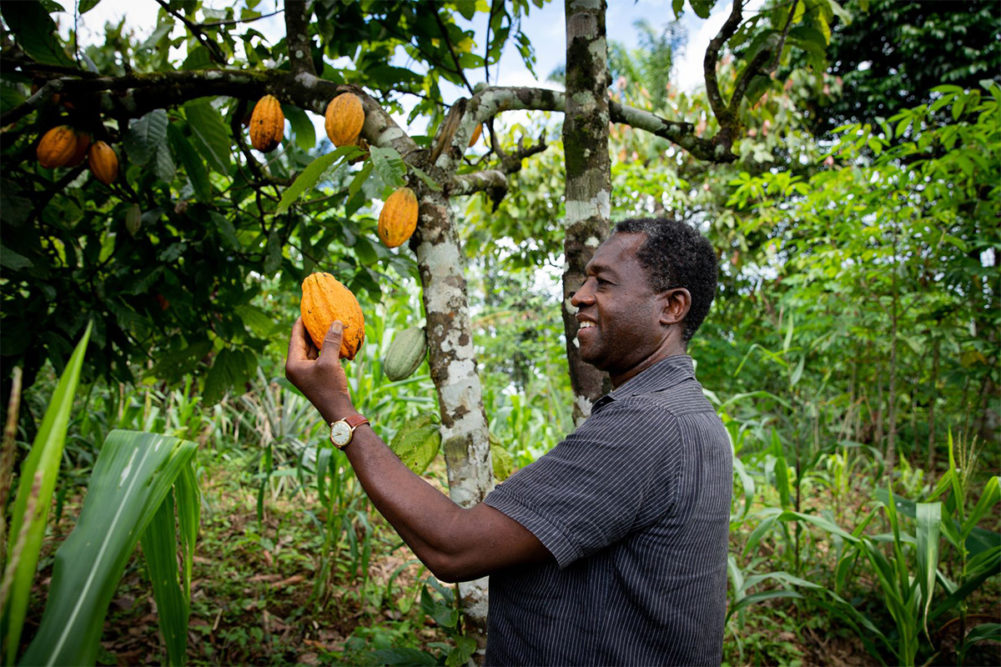LONDON — OFI since 2018 has reduced carbon dioxide emissions, increased monitoring of child labor and raised farmer incomes, according to a Cocoa Compass sustainability report for 2020-21 released Sept. 27.
Carbon dioxide emissions per tonne of product output from cocoa processing facilities fell by 19% from 2018 levels. Installing circular biomass boilers fueled by waste cocoa shells and switching to green electricity led to the decrease. A boiler at the Koog aan de Zaan facility in The Netherlands will allow the company to target a further 50% drop in natural gas use, leading to a reduction in carbon dioxide emissions. OFI produces its premium cocoa ingredient brand, deZaan, at the facility.
“We need to keep the 1.5 degrees climate ambition alive,” said Gerard A. Manley, chief executive officer of OFI’s cocoa platform and chief sustainability officer for OFI. “That means driving climate action at every stage of our supply chain, from plant to palate, supporting customers on their own decarbonization journeys, and reassuring consumers that their favorite chocolate bar, baked good or ice cream is having a positive impact on the cocoa communities and landscapes it came from.”
OFI, a business of Singapore-based Olam International, also distributed 1.75 million trees to farmers and polygon mapped two-thirds of its sustainability programs. The company now has 100% deforestation monitoring in its direct supply chain across nine countries.
OFI’s child-labor-monitoring app, already used across Africa, Brazil and Indonesia, was extended to Papua New Guinea. The goal is to eliminate child labor from OFI’s cocoa supply chain by 2030. Another goal for 2030 is 150,000 cocoa farmers in the supplier network achieving a living income.




